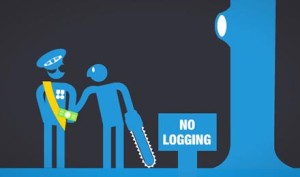Commentary
By Amin Kef Sesay
The term corruption comes from the Latin verb ‘to break’, rumpere – which implies that something is badly broken. This might be a moral or ethical code or more often an administrative rule or law. The person who breaks it derives some recognition or benefit for him/herself, family, tribe, party, or some other relevant group.
After independence, most African countries drifted from a bureaucratic administration that emphasized good governance to one that emphasized the sovereignty of politics. This resulted in the emergence of a politicized bureaucracy which began to engage in centralized economic decision-making and patrimonialism.
The new states were not only autocracies rather political and economic monopolies now lacking in accountability, transparency and the rule of law. Thus, the post-independence bureaucracy that emerged in most African countries contributed to institutional instability, the politicization of the State and patrimonial economic management and incentives, whereby clientelism replaced moral and political legitimacy and political and personal loyalty and obedience were rewarded more than merited.
This was the genesis of corruption in Africa. The unethical politicization of the bureaucracy allowed for the entrenchment of the use of personal aggrandizement and patronage as a means of exercising authority and influence. The politicians and the bureaucrats forged a dependent patron/client relationship through which administrative decision-making occurred. This process, inevitably led to a cooperative and institutionalized abuse of public office for private and personal gain. Corruption can now be defined against that foregoing background.
Corruption is seen, first and foremost, as the utilization of official positions or titles for personal or private gain, either on an individual or collective basis, at the expense of the public good, in violation of established rules and ethical considerations, and through the direct or indirect participation of one or more public officials whether they be politicians or bureaucrats.
In a simplistic sense, corruption may be seen as partisanship that challenges statesmanship. It is an act or acts undertaken with the deliberate intent of deriving or extracting personal and/or private rewards against the interests of the State.
The development of resource rich countries like Sierra Leone were seriously held back in the decade after independence in 1961 by bad State governance, poor public sector financial management and the most cancerous disease of them all – corruption.
Corruption reached cancerous proportions in the 1980s when systems collapsed, the economy faltered, jobs disappeared, inflation set in followed by its attendant youth frustrations and hopelessness about a better future among the population. Presidents Ahmed Tejan Kabbah and Ernest Bai Koroma tried between 1996 and 2018 to put the disease under control, with mixed results; yet corruption continued to affect the nation’s future.
Corruption reflects the general climate of unethical leadership and bad governance found throughout most of the continent. The pandemic of corruption in Africa, and it’s extremely negative impact on socioeconomic development and the fight against poverty in the region, became matters of global concern; with the World Bank, USA, UK and other Western development partners focusing their attention on the root causes and consequences, as well as on action to control this cancer in society.
At the 1996 joint annual meeting of the World Bank and International Monetary Fund (IMF), had former World Bank President James Wolfensohn declaring that: ‘Let’s not mince words, we need to deal with the cancer of corruption. In country after country, it is the people who are demanding action on this issue’. Mr. Wolfensohn also made similar statements in his 1997 address to the Board of Governors where he said: ‘We have seen how corruption flourishes in the dark, how it prevents growth and social equity, and how it creates the basis for social and political instability’.
Similarly and quite surprisingly, the United Nations General Assembly issued a resolution, on 16 December 1996, aiming at promoting social responsibility and ethics. The ‘UN Declaration Against Corruption and Bribery in International Commercial Transactions’ emphasized the need to ‘promote social responsibility and appropriate standards of ethics on the part of private and public corporations, including transnational corporations, and individuals …’. It further stated that fighting and controlling corruption are also necessary to ‘enhance fairness and competitiveness in international commercial transactions’.
In the ACC’s fight against corruption, it is crucial that we the people talk openly about how our everyday lives are permeated by behaviors and values which are unethical and contribute to the entrenchment of norms perpetrated by corrupt politicians and bureaucrats.
Such concern is a good thing, for until we the people decide to react forcefully against the stench of corruption to which we are currently subjected, it will remain a societal norm poisoning civil society and splitting it into rent-seeking elites and helpless spectators.





